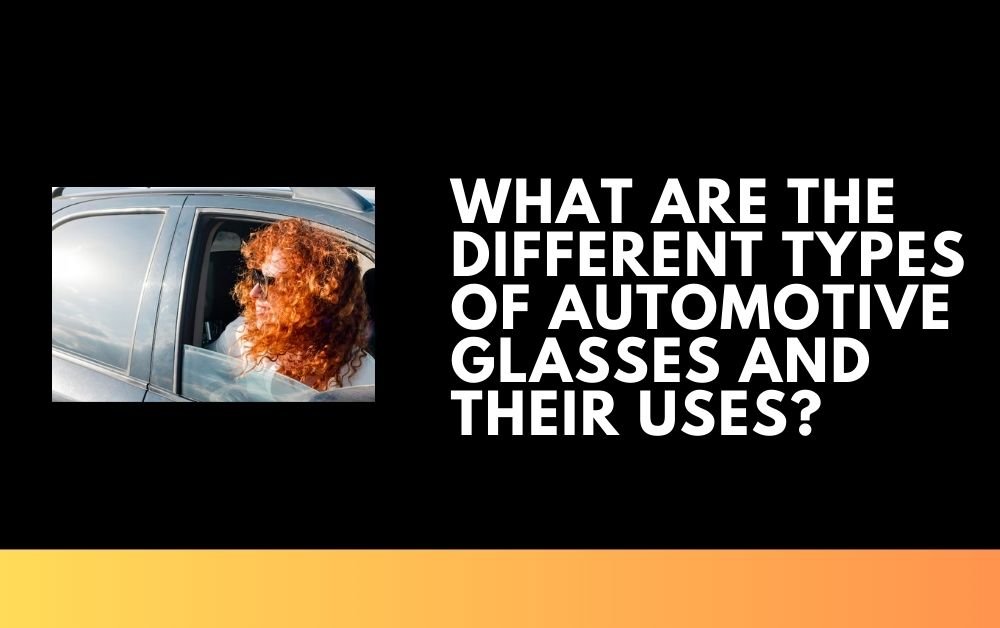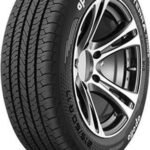When thinking about vehicle safety and comfort, automotive glass plays a significant role. Most people consider the windshield when they think of car windows, but there are different types of glass used in vehicles, each with its own purpose. In this blog, we’ll take a detailed look at the different types of automotive glasses, their features, and their uses. Understanding these types can help you appreciate the importance of your car’s glass and how it keeps you safe.
Understanding Automotive Glass
What Is Automotive Glass?
Automotive glass refers to the various types of glass used in a vehicle, including the windshield, side windows, and rear window. It’s not like regular glass; automotive glass is specifically designed to be stronger, safer, and more durable. It’s also designed to protect occupants in case of accidents or road debris.
Why Is Automotive Glass Important?
The glass in a car doesn’t just offer clear visibility; it also provides protection, supports the vehicle’s structure, reduces noise, and keeps the interior comfortable. Different types of glass in a car are made for different purposes, and each one plays a role in making the driving experience safer and more enjoyable.
Types of Automotive Glass and Their Uses
1. Laminated Glass
What Is Laminated Glass?
Laminated glass is made by bonding two layers of glass with a plastic layer (usually polyvinyl butyral, or PVB) in the middle. This middle layer helps hold the glass together if it breaks, preventing it from shattering into sharp pieces.
Where Is Laminated Glass Used?
Laminated glass is primarily used for windshields. It’s designed to protect drivers and passengers from injury if something hits the windshield. If the glass breaks, the plastic layer keeps the pieces in place instead of allowing them to fly around, reducing the risk of injury.
Why Laminated Glass Is Important
- Safety: Laminated glass doesn’t shatter on impact, which helps protect passengers from flying glass shards.
- Sound Insulation: The plastic layer also helps reduce road noise, making the inside of the car quieter.
- UV Protection: Laminated glass blocks harmful ultraviolet (UV) rays from the sun, protecting both passengers and the car’s interior.
2. Tempered Glass
What Is Tempered Glass?
Tempered glass is made by heating glass to a high temperature and then cooling it quickly. This process makes the glass much stronger than regular glass. When tempered glass breaks, it shatters into small, blunt pieces rather than sharp shards.
Where Is Tempered Glass Used?
Tempered glass is typically used for side windows and rear windows. The idea is that if the glass needs to be broken in an emergency, such as a car accident, it will shatter into small pieces that are less likely to cause injury.
Why Tempered Glass Is Important
- Safety: If tempered glass breaks, it shatters into small, less dangerous pieces, reducing the risk of serious cuts or injuries.
- Durability: Tempered glass is strong enough to handle impact without breaking easily, but it’s designed to shatter safely if it does break.
- Heat Resistance: Tempered glass is also more resistant to extreme temperatures, making it ideal for windows that are exposed to sunlight and heat.
3. Privacy Glass
What Is Privacy Glass?
Privacy glass is a type of tempered glass that is tinted to make it darker, offering more privacy for passengers. It’s usually installed in the rear windows of vehicles, particularly in SUVs, vans, and luxury cars.
Where Is Privacy Glass Used?
Privacy glass is used on the side and rear windows of vehicles, but it is not used for the windshield because drivers need a clear view of the road. The darker tint offers privacy for passengers sitting in the back seats and protects the vehicle’s contents from prying eyes.
Why Privacy Glass Is Important
- Privacy: Privacy glass helps keep the car’s interior less visible, making it harder for outsiders to see inside.
- UV Protection: Like laminated glass, privacy glass blocks harmful UV rays, helping to protect passengers and the vehicle’s interior from sun damage.
- Heat Reduction: The tint in privacy glass also helps reduce the amount of heat entering the vehicle, making it cooler and more comfortable.
4. Acoustic Glass
What Is Acoustic Glass?
Acoustic glass is designed to reduce the amount of noise that enters the vehicle. It’s similar to laminated glass but includes additional layers or treatments that specifically block sound waves.
Where Is Acoustic Glass Used?
Acoustic glass is often used in windshields and sometimes in side windows, particularly in luxury vehicles where a quieter cabin is a priority.
Why Acoustic Glass Is Important
- Soundproofing: Acoustic glass significantly reduces road noise, making for a quieter and more comfortable driving experience.
- Better Focus: By blocking outside noise, acoustic glass helps drivers focus better, which can improve safety.
- Improved Communication: With less noise entering the car, it’s easier for passengers to talk to each other without raising their voices.
5. Solar Glass
What Is Solar Glass?
Solar glass is designed to filter out harmful UV rays and reduce the amount of heat that enters the car. This type of glass is treated with special coatings that reflect or absorb sunlight, keeping the car’s interior cooler.
Where Is Solar Glass Used?
Solar glass can be used for windshields, side windows, and rear windows. It is commonly found in cars that are built for hot climates, where sun exposure is a significant concern.
Why Solar Glass Is Important
- Heat Reduction: Solar glass keeps the car cooler by blocking a significant portion of the sun’s heat.
- UV Protection: It provides protection from UV rays, reducing the risk of skin damage and keeping the car’s interior from fading.
- Fuel Efficiency: Since solar glass reduces the need for air conditioning, it can help improve the car’s fuel efficiency by decreasing the energy used for cooling the vehicle.
How Automotive Glass Protects You

Safety in Accidents
One of the most important roles of automotive glass is keeping passengers safe during accidents. Laminated glass prevents the windshield from shattering, which reduces the risk of injury. Tempered glass breaks into harmless pieces, reducing the chance of cuts and wounds.
Supporting Vehicle Structure
Automotive glass, particularly the windshield, also plays a role in the vehicle’s structural integrity. In some accidents, a properly installed windshield can prevent the roof from collapsing, offering better protection to passengers.
Improving Visibility
Clean and well-maintained automotive glass improves visibility for drivers. Features like anti-glare coatings and UV protection help reduce eye strain, allowing drivers to focus on the road without being distracted by reflections or sunlight.
Maintaining Automotive Glass
Regular Cleaning
To ensure your car’s glass stays clear and functional, regular cleaning is essential. Use a gentle glass cleaner and a microfiber cloth to avoid scratches. Clean both the inside and outside of your windows to ensure full visibility.
Inspect for Damage
Inspect your car’s windows and windshield regularly for cracks, chips, or other damage. Even small cracks can grow larger over time and weaken the glass. Addressing these issues early can prevent costly repairs and keep you safer.
Repair or Replace Damaged Glass
If your windshield or windows are cracked, get them repaired or replaced immediately. A damaged windshield can affect the structural integrity of the vehicle and reduce safety in an accident.
Conclusion
Understanding the different types of automotive glass and their uses can help you better appreciate the safety features built into your vehicle. From laminated glass in the windshield to tempered glass in the side and rear windows, each type of glass plays a role in keeping you safe, comfortable, and protected from the elements. Additionally, privacy, acoustic, and solar glass offer specialized benefits that can enhance your driving experience.
Maintaining your car’s glass is essential for safety and comfort. Regular cleaning, inspections, and repairs ensure that your windows and windshield continue to perform well and keep you safe on the road. Whether you’re driving in the city or on a highway, the glass in your vehicle is working hard to protect you every mile of the way.
Note:- To read more articles visit on iktimes.


